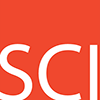Truth is the cornerstone of modern civilization. Without it, we are ruled by superstition, fear and persecution. Without truth, we cure illness by bloodletting, and blame Jews and witches for failed crops. Without truth, we trust snake-oil salesmen more than scientists, politicians more than medical doctors, angry mobs more than justice systems, and wild-eyed conspiracy theorists more than journalists, educators and historians.
John McCain recognized this better than perhaps any politician in modern American history. President Obama, speaking at Senator McCain’s funeral in 2018, summarized McCain’s belief this way: “if we get in the habit of bending the truth to suit political expediency or party orthodoxy, our democracy will not work.”
Truth is a relatively new privilege in human history, however. It was hard-earned, and is proving hard to keep in our modern era of disinformation and politically-motivated truth-bashing. Up until the early 1600s, truth for most Europeans was defined by popes and kings who told their citizens what to believe. Then, Galileo pointed his telescope at the moon, saw it was jagged and imperfect, and openly questioned the church’s explanation for how the universe operated (that’s the short story—the long version is much more interesting). Galileo and his fellow truth-seekers started the Scientific Revolution, and humans began realizing for the first time that the world had provable, observable, objective truths, and that these truths belonged to everyone, everywhere.
From this breakthrough, social change followed as well. If popes and kings weren’t infallible, then what right did they have to define the truths that ruled us all? We were suddenly liberated from the chains that had confined our freedom and thinking for thousands of years.
This upheaval came to a head in the late 1700s, when a small group of American philosophers invented a nation out of whole cloth. All human history up to this point had been marred by political violence and religious persecution, where the freedom to think, speak and worship were doled out as favors. Our founding fathers studied this history, and invented a daringly new system where citizens ruled and the light of truth, justice, tolerance and openness drowned out the darkness, fear and bigotry of the past and created a new model for the world of how government should be run.
On November 5th, Americans voted on who will rule our country for the next four years. But they also voted whether we still want truth to be part of American society. Unfortunately, one party on the ballot held that truth is once again relative: Science can’t be trusted, history can be erased, government researchers are agents of the deep state, and the leader is never wrong.
How did we get to this strange place? The short version is that anti-truth “alternative facts” gaslighting has been gradually ratcheting up for decades—especially in science (think climate change and vaccines)—until today, in our age of medical and technological miracles, trust in science among Republicans has somehow plummeted to its lowest levels ever while trust in science among non-Republicans has increased. Republicans and science haven’t been the only targets, of course. A global tsunami of disinformation, false equivalencies and baldfaced lies constantly floods the zone of our daily lives. Truth has become a needle in a haystack.
The path we’re on, where half of Americans cast their votes in November for a truth-denying party that will literally take us back to the Dark Ages, should be terrifying to anyone with a conscience. We have earned the right to separate truth from fiction, and we must keep this right so we can function as a modern society and confront the many real and urgent challenges ahead. We can argue about partisan politics another day. But unless we support truth today, truth may disappear. And then what?
Glenn is Executive Director of the Science Communication Institute and Program Director for SCI’s global Open Scholarship Initiative and Carbon Dioxide Removal Action Network (CDRANet). You can reach him at ghampson@sci.institute.
